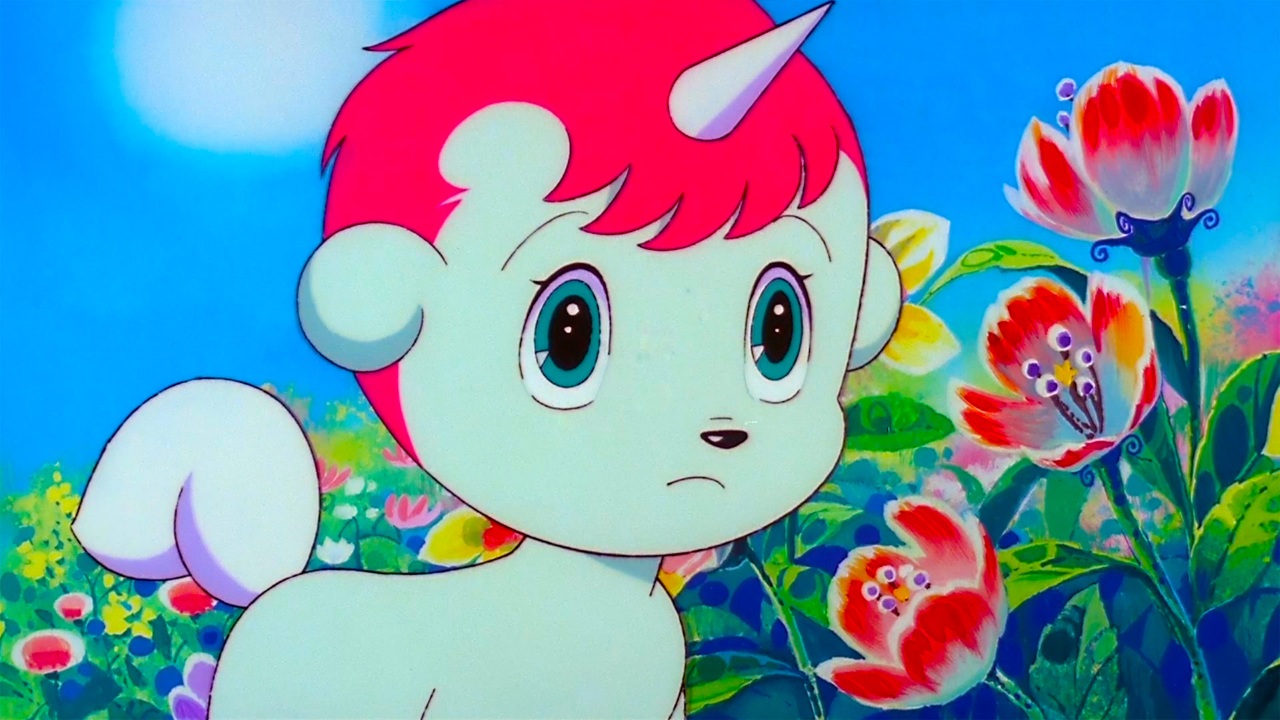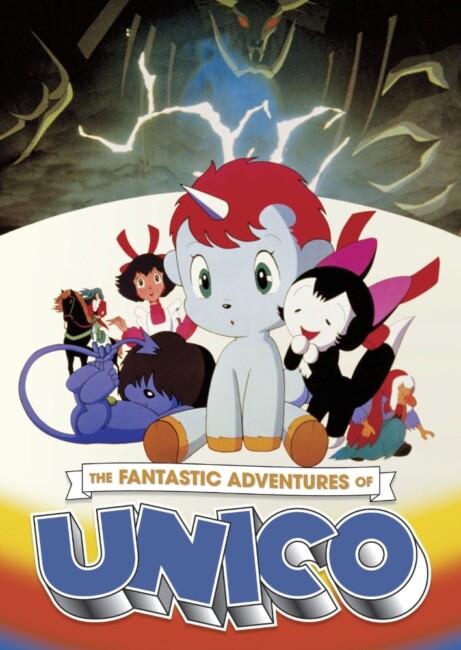aka The Fantastic Adventures of Unico
Crew
Director – Toshio Hirata, Screenplay – Masaki Tsuji, Based on a Story by Osamu Tezuka, Producer – Shintaro Tsuji, Music – Ryo Kitayama, Art Direction – Akio Sugino. Production Company – Sanrio.
Plot
The gods are jealous of the young unicorn boy Unico who can bring happiness to everybody he loves. They call the West Wind to take Unico away and abandon him in a place without people. However, the West Wind takes pity on Unico and instead leaves him in a remote rocky area. There Unico meets the brattish son of the Devil of Solitude but gradually wins his heart over with love. This attracts the attention of the gods again and they whisk Unico away and abandon him in the woods. There Unico befriends Chao, a self-absorbed young cat who dreams of being a witch and is certain that an old lady that lives in the woods is a witch who can teach her. To help her, Unico magically transforms Chao into a young woman. Chao befriends the old lady only for the sinister Baron Ghost seduces Chao away. As Unico sets out to rescue her, the gods raise demonic forces and send the Night Wind to destroy him once and for all.
Unico is an appealingly anime. It gives the appearance of being made for – and is largely sold as to – young children, although the more one becomes drawn into it, the less this appears to be the case. The animation is modelled on the traditional look familiar to much juvenile anime – Sailor Moon (1995-2000), Pokemon (1997-2002) etc – of characters with exaggeratedly cute anthropomorphic features and big wide eyes and is drawn in a series of shining and vibrant colours.
The characters are adorably charming – especially the manic Little Devil who only produces rainbow-coloured mini-lightning bolts in his attempt to scare and his gradual recognition that he needs Unico’s friendship; while it is hard not to be moved by the plight of the kitten Chao as she attempts to make the old lady like her and keeps failing. Unico is a delightful film.
Oddly though, in its latter half, the tone of the appealingly cute children’s film changes and becomes something darker. The sugariness of the earlier scenes gradually becomes underlaid with elements from a dark fantasy – a sinister anthropomorphic forest like something out of Disney’s Snow White and the Seven Dwarfs (1937); a dark lord that attempts to seduce the cat girl (although the film has such a sense of innocence to it that his seduction never amounts to anything more than trying to get her drunk); the sinister figure of the Night Wind pursuing Unico; and the climactic battle with demon figures and dragons.

At times, the images are quite violent – Baron Ghost receiving his end impaled on a pike, Unico severing the dragon’s heads in gouts of green blood. Certainly, the change of tone from the earlier parts of the film is marked. Nevertheless, in both the extremes it covers, Unico is an appealing and imaginative fantasy. The ending finally arrived at is very sad.
The film is based on Unico (1976-9), a children’s manga created by the legendary Osamu Tezuka, best known as the creator of Astro Boy (1963-6) and Kimba the White Lion (1965-7). Some sources list Tezuka as the co-director of the film, although this is not the case. The adventures of Unico were continued in a subsequent anime film Unico on the Island of Magic (1983).


